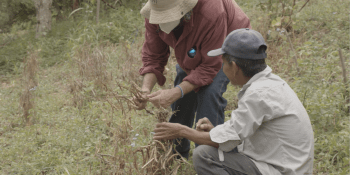Workshop: Context specific scenario-guided policy analysis for development, food security and environment in the Andean region

UNEP’s World Conservation Monitoring Centre (UNEP-WCMC) is implementing a project entitled: Commodities and Biodiversity, Planning for Future Capacity funded by the MacArthur Foundation. This project aims to develop knowledge and tools to address the need to balance a growing demand for food and other commodities (e.g. forest resources, minerals, gas, oil) with environmental conservation.
The project seeks to support decision making in relation to the current and likely future impacts of major commodity markets on ecosystems, under a changing climate, in three regions: the Great Lakes of Central and Eastern Africa, the Greater Mekong in Southeast Asia and the Andes and its Watersheds in Latin America.
To achieve these goals UNEP-WCMC collaborates with the CGIAR Research Program on Climate Change, Agriculture and Food Security (CCAFS) and the Universidad para la Cooperación International (UCI). Together they supported the development of four socio-economic scenarios by regional stakeholders in 2013. These scenarios aimed to identify key socio-economic uncertainties for regional food security, the environment and societal capacity to adapt to climate change in the Andean region.
The scenarios were processed into a model of land use change, whose outputs were used to map the potential effects of future commodity developments on biodiversity and ecosystem functions in the Andean region. The analysis focuses on Colombia, Ecuador, Peru and Bolivia.
In an effort to maximise both the validity and the usefulness of this work for regional stakeholders, UNEP-WCMC, CCAFS and UCI organise this workshop that will seek to:
Review the previously developed regional scenarios and their potential impacts on biodiversity and ecosystem services in a geographically explicit context.
Evaluate the robustness of relevant existing or planned policies addressing development, food security or the environment across the different scenarios.
Assess existing capacity and capacity needs to implement the policies.
Formulate recommendations so that existing policies better address potential trade-offs and identify future priorities for environmental management, agricultural development and adaptation to climate change.


